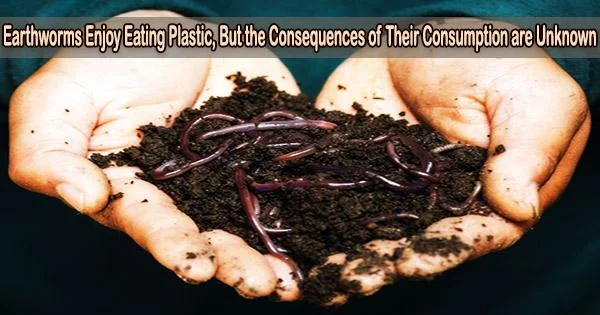Gardeners and farmers appreciate earthworms because the writhing invertebrates recycle nutrients from the soil, making them more available to plants. Worms consume practically everything in their path as they dig, including minuscule plastic pollutants.
Researchers from the American Chemical Society’s Environmental Science & Technology journal have discovered that earthworms prefer soil with certain types of microplastics but digest the polymers differently, which the team believes could have an influence on the animals’ health and the ecosystem.
Soil is becoming progressively contaminated by plastic pieces, particularly microplastics less than 5 mm in diameter that have broken off of bigger plastic debris or have been directly released as microscopic particles from items.
Researchers have previously demonstrated that earthworms would consume these synthetic particles, even breaking them up into smaller pieces. However, the microplastics themselves or the toxic substances they carry during the digestion process may harm animals.
Currently, companies are producing alternatives to petroleum-based plastics that are derived from plants, are biodegradable, or both. These “bioplastics” can fracture into minuscule particles, just like regular plastics, but there is limited information on whether earthworms will eat and degrade these materials.
So, Lei Wang and colleagues wanted to compare the willingness of earthworms to consume soil laced with microscopic pieces of bioplastic and petroleum-derived plastic, studying the in vitro digestion and excretion of the particles.
The researchers discovered that earthworms preferred soils with bio-based polylactic acid (PLA) particles or petroleum-derived polyethylene terephthalate (PET) particles but actively avoided some semi-synthetic plastics by placing them in chambers with different types of plastics in different locations in the soil.
When lactic acid and terephthalic acid, the sour-smelling monomers that make up PLA and PET, respectively, were spiked into the soil, the worms were pulled in, implying that the scents drew the creatures in as potential cues for food.
In another experiment, earthworms were placed in soil containing either microscopic PLA or PET particles. The critters’ excretions revealed that their digestive systems broke down PLA into far smaller particles than PET polymers. The animals also excreted PLA much more slowly.
The researchers say the results show that earthworms can promote the breakdown of bioplastics, such as PLA, in soil. More research is needed to determine how the slow excretion of PLA fragments affects the health of these animals and whether worms are a viable option for removing biodegradable plastics from the environment.
The authors acknowledge funding from a National Key Research and Development Project of China, the National Natural Science Foundation of China, the Tianjin Municipal Science and Technology Bureau, the Ministry of Education (China), and the Tianjin Research Innovation Project for Postgraduate Students.





